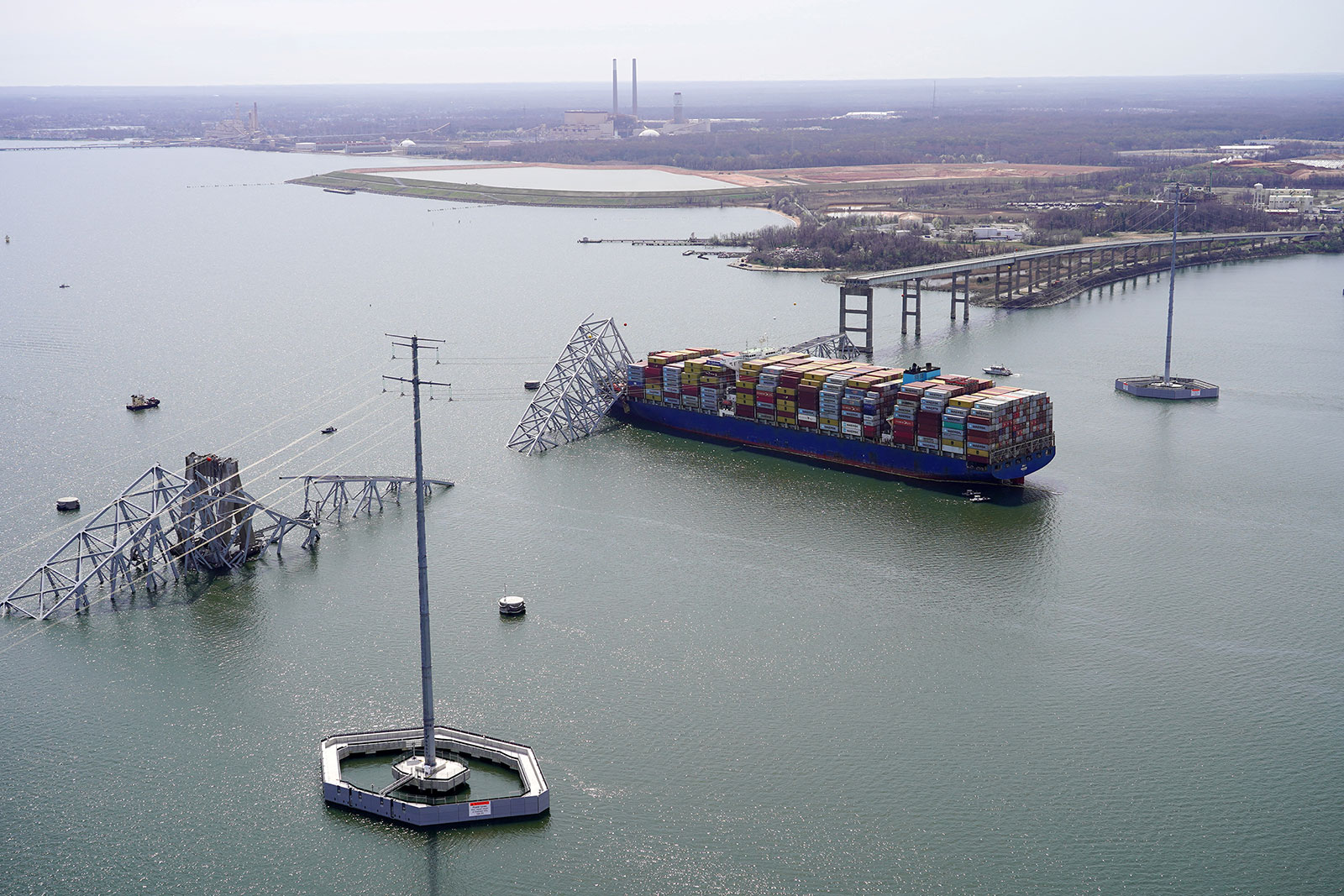- About this morning’s Baltimore bridge collapse, and the right-wing conspiracy-theory accusations about it;
- Paul Krugman on how Republicans want to bring down Obamacare to support their notion that the government can never do good things;
- And a Doonesbury cartoon about the need to believe.
Very early this morning a container ship struck a bridge in Baltimore and knocked it down. It’s been all over the news, all day. (Here’s a current CNN summary.) And I can’t resist noting a few reactions from the right-wing/MAGA/Republican loonies, who blame anything and everything on whatever they don’t like, especially Biden and Democrats.

- It was terrorists;
- It was Biden’s Infrastructure Bill, because even though this person voted against it, the bill didn’t include *enough* for roads and bridges;
- It’s because Transportation Secretary Pete Buttigieg is gay;
- And right-wing trolls are posting videos of an explosion on a bridge in Crimea and claim it’s the Baltimore bridge.
*
On more serious notes.
This Paul Krugman piece identifies a key Republican priority. This aligns with my ideas about American exceptionalism, mentioned five days ago, including the rugged individualism that wants no interference from the government, and cannot even admit that the government can do good things.

NY Times, Paul Krugman, 25 Mar 2024: Obamacare Is in Grave Danger, Again
Why are Republicans so hostile to a program that increased health insurance coverage for millions? Because it was the idea of, you know, a black man? (I’m sure that’s part of it.) Trump had four years to replace it with something else, as he continually promised, without ever doing it. Or is it simpler than that?
Krugman opens:
Are you better off than you would have been 14 years ago? If you’re one of the millions of Americans who have an existing medical condition and don’t have a job that comes with health benefits, the answer is, overwhelmingly, yes.
Why? Because before the Affordable Care Act, a.k.a. Obamacare — signed into law on March 23, 2010, although many of its provisions didn’t kick in until 2014 — you probably wouldn’t have been able to get health insurance. Today you can, thanks to provisions in the law that prevent insurers from discriminating based on medical history and that subsidize insurance premiums for many Americans. (These subsidies also provide healthy people with an incentive to purchase insurance, improving the risk pool.)
Krugman details what Obamacare achieved. And how none of the Republican predictions of disaster came true. So why is it in danger now? First, because Trump is an idiot.
First, it’s important to remember that Trump, aside from his venomous attitude toward immigrants and his protectionist instincts, has shown that he neither knows nor cares much about the details of policy. Last week he posted a screed about how an “INVASION” of migrants is “KILLING SOCIAL SECURITY AND MEDICARE,” which is both the opposite of the truth and a demonstration that he has little idea how even the biggest, most important government programs work.
And because his base reflexively opposes anything (including economic policies) that might benefit them but which Republicans, whose priority is always to benefit the wealthy, oppose. Referring to the latest GOP budget proposal:
What I found striking about the budget proposal was how its authors deal with the fact that none of the dire predictions right-wingers made about Obamacare have come true. The answer is that they simply pretend that the bad things they predicted, which didn’t happen, did. I was struck, for example, by the assertion that Obamacare “dramatically escalated the unsustainable rise in American health care spending.” Indeed, in 2010, total U.S. health care spending was 17.2 percent of G.D.P. By 2022 that number had risen to … 17.3 percent of G.D.P.
But here’s the clincher.
So the reality of Obamacare’s success won’t deter Republicans who want to destroy it. If anything, the law’s success only increases their determination to kill it, because it shows that, contrary to their ideology, government actually can make Americans’ lives better.
\\\
One more item for this afternoon.
Doonsbury: March 24, 2024. I’m sure I can’t reproduce the graphic here; it’s copyright. But I can summarize:
Three people in a farmhouse: B.D., a war veteran; Boopsie, his wife, a credulous former cheerleader; and their friend Rev. Sloan.
Boopsie: 30%? How could there still be that many election deniers?
Sloan [over several panels]: We’re a gullible nation, Boopsie.
Millions of Americans also believe in ghosts, alien abductions and QAnon’s satanic pedophile cannibals.
None of these beliefs are supported by facts or evidence, but myths serve and emotional purpose.
They help people make sense of a world that frightens them. People crave certainty and hope.
It’s why there are so many cult leaders and scam artists and astrologists and psychics…
B.D.: And clergy.
Sloan: Entirely different discussion.
Is it an entirely different discussion? Maybe so. I’ve been reading Harari again, about the big stories that nations tell themselves to maintain social cohesion. Which are different from beliefs in ghosts and UFOs, yes?
Still. They’re all *false*, untrue, stories. They are not real. But perhaps human civilization could not survive without some of those big stories. More on this when I discuss the new Harari book. Perhaps humanity only survives through some kind of existential trap.





